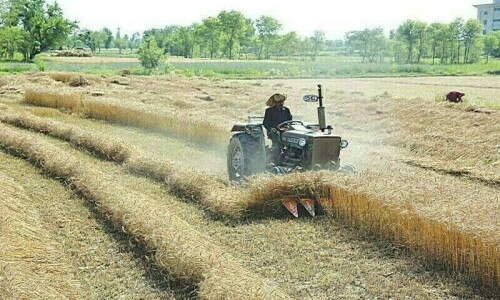UNITED NATIONS: “If ever there was need for partnership, it is now,” said Pakistan’s UN envoy Munir Akram as global Covid-19 deaths crossed 3.2 million by Tuesday afternoon.
The World Health Organisation (WHO), which monitors the unfolding global tragedy, confirmed 153.18m Covid-19 cases and 3.2m deaths as of May 4. It also reported that so far, a total of 1.04 billion vaccine doses have been administered worldwide.
At the UN headquarters in New York, senior UN officials urged world leaders to work together to defeat the deadly disease, reminding them that global cooperation and solidarity were the only way out of the crisis.
Speaking at the annual Partnership Forum, organised by the UN Economic and Social Council (ECOSOC), Ambassador Akram outlined several areas where partnerships could be used to contain Covid-19 and achieve the Sustainable Development Goals (SDGs).
The Pakistani envoy, who is also ECOSOC’s president, said that defeating the pandemic should be the top priority for all nations. To do so, the international community must ensure universal and equitable access to vaccines and related materials, equipment and technologies, he added.
Focusing on the economic impact of the pandemic, Ambassador Akram urged all nations to work together to prevent millions from descending into extreme poverty and destitution.
“This means helping the poorest people with direct and indirect economic support and social safety nets”, he said. “It means providing the poorest countries with fiscal space through debt relief, emergency grants and concession financing to save lives and livelihoods.”
He noted that while richer countries had devoted some $17 trillion to revive their economies, developing nations needed around $4.3tr not only to recover from the pandemic but to get back on the path to sustainable development.
Global partnerships, he said, must help promote financing solutions such as debt restructuring, low-interest loans and greater foreign investment.
Recently, the International Monetary Fund (IMF) set aside $650bn in new special drawing rights (SDRs), a type of foreign reserve asset.
Appreciating this as a key component of the struggle to recover from the economic impact of the pandemic, Ambassador Akram said: “We need to redress the structurally induced economic and social inequalities among and within nations, including through reformed and equitable trade, investment, tax and technology instruments.”
To bring about a resilient and environment-friendly global economy, the Pakistan envoy suggested investments in sustainable infrastructures in developing nations. This would require about $100tr of investments over the next three decades, he added.
Published in Dawn, May 5th, 2021















































